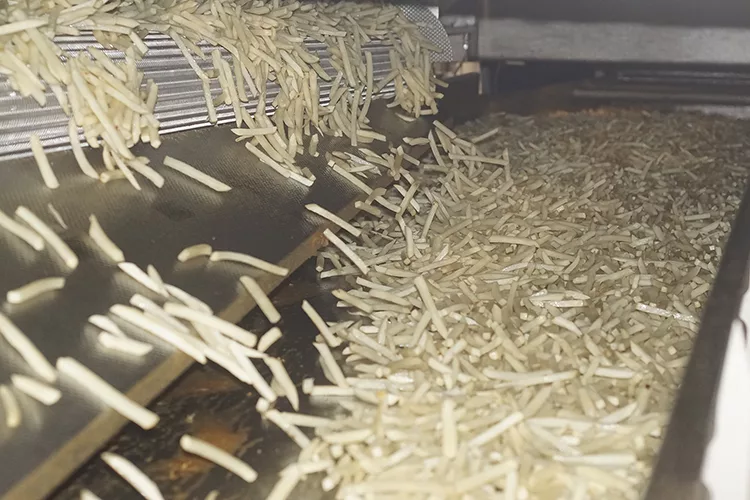
Home » Port, Connell work to find long-term solution to plant closure
Port, Connell work to find long-term solution to plant closure
Lamb Weston lists 450,000-square-foot food processing facility

February 13, 2025
A $100,000 state grant to study potential industrial sites in Connell may provide a path to economic sustainability for a community still dealing with the closure of its largest employer.
Officials continue to address the immediate impacts of the sudden shuttering of Lamb Weston’s processing plant, which employed hundreds and was a major source of tax revenue for the city of Connell. But those with the city and the Port of Pasco say the new grant from the state’s Community Economic Revitalization Board (CERB) could shine light on what industries and partners could be in its future.
“Our top priority is identifying opportunities that bring new, family-wage jobs to Connell, helping to offset the economic impacts of the Lamb Weston closure,” said Mayor Lee Barrow in a statement.
Lamb Weston is one of the Tri-Cities’ largest employers, with 2,660 employees in Benton and Franklin counties, according to Tri-Cities Area Journal of Business’ Largest Employers list.
The potato processor abruptly announced the closure of the Connell plant on Oct. 1, adding it planned to temporarily curtail some production lines and schedules throughout its manufacturing network and eliminate some other jobs amid rising costs and declining revenue. It applied for permits to demolish the 450,000-square-foot plant but has since listed the property for sale.
Roughly 150 of the plant’s 375 workers reportedly live in Connell. About $580,000 of the city’s water utility’s annual revenues, representing more than half of the utility’s budget, came from the plant, and it also generated another $200,000 or so in other revenue for the city’s general fund.
Port and city officials began working on solutions as soon as the closure was announced. There have been job fairs and other workforce outreach in the wake of the closure, but port officials acknowledge that there are few short-term prospects for a new private employer comparable to Lamb Weston’s plant coming into Connell.
“Hopefully people will hang in there and stay with us,” Joe Escalera, a member of Connell’s city council, recently told the port’s board of commissioners during a public meeting.
That led to the effort to secure a CERB grant to conduct an industrial site readiness study. The port previously received a $416,000 grant from the state board to begin gathering data and conducting assessments for a future aerospace park.
The state board unanimously approved the proposal from the port and city in mid-January. Required matching funds to receive the grant are being covered by the port and Avista Corporation.
Stephen McFadden, the port’s director of marketing and economic development, said this new grant will focus on identifying up to three potential industrial sites and conducting infrastructure, environmental and cultural assessments. It will pay for the development of a targeted marketing strategy and identify potential micro-industries suitable for smaller sites. Public engagement, such as seeking community feedback on preferred types of businesses and industries, also will be part of the effort.
“We want to come up with as much data as possible so we can knock on the right doors,” McFadden said.
Part of the challenge of the study is the lack of land that has access to traditionally desired industrial infrastructure. There are some sizable tracts available, said Randy Hayden, the port’s executive director, but they haven’t been considered because they don’t have existing rail access or infrastructure for water and sewer.
But those resources aren’t necessarily critical to those needing land for energy projects, Hayden said. The region has growing demand for energy to meet the needs of facilities such as data centers and battery manufacturers.
“I think there are some other opportunities available there,” Hayden said.
Real Estate & Construction Local News Food Processing Manufacturing
KEYWORDS February 2025
Related Articles
Related Products





